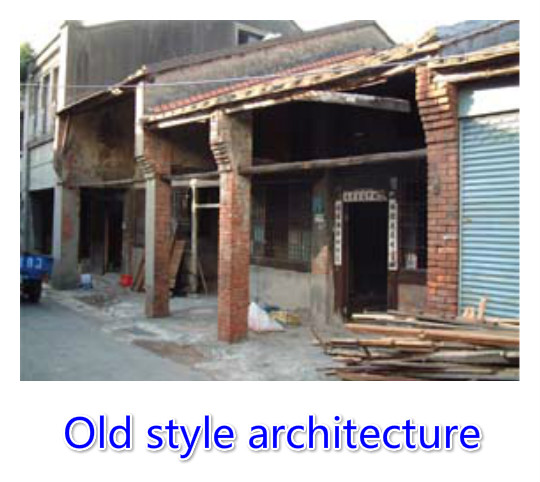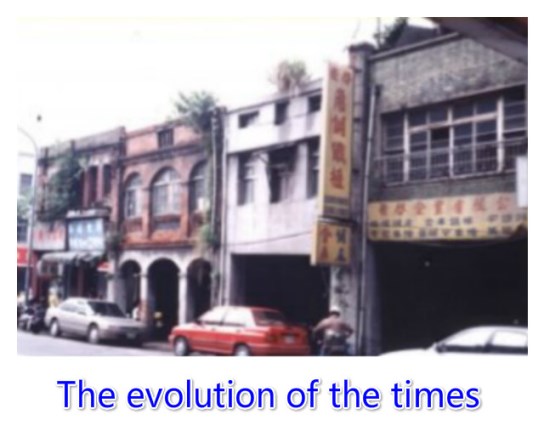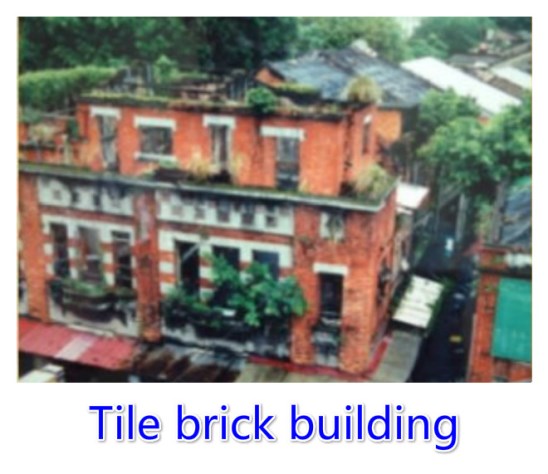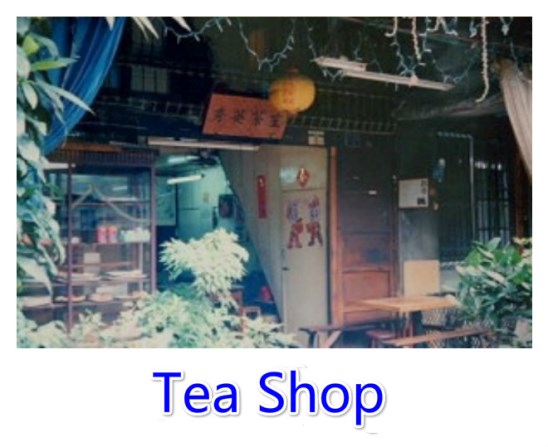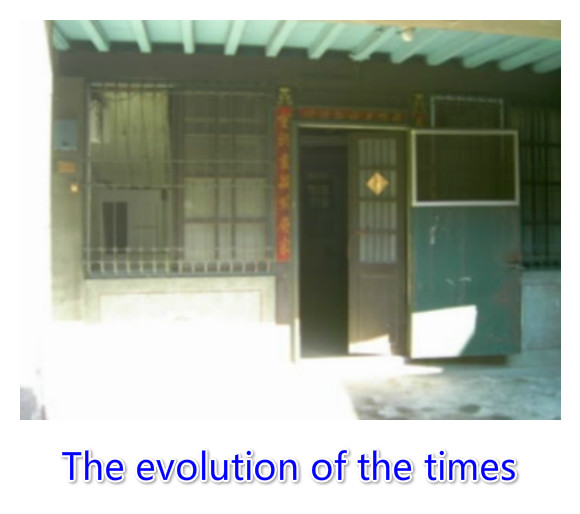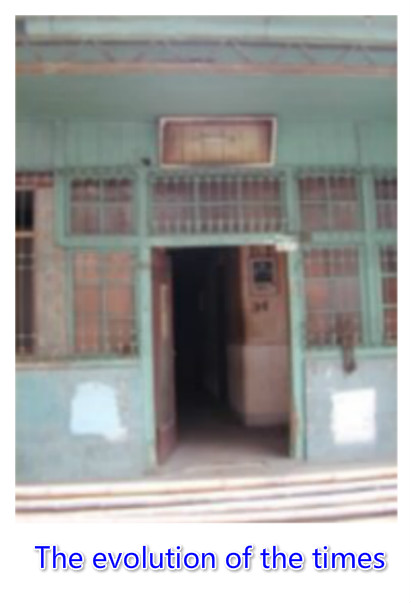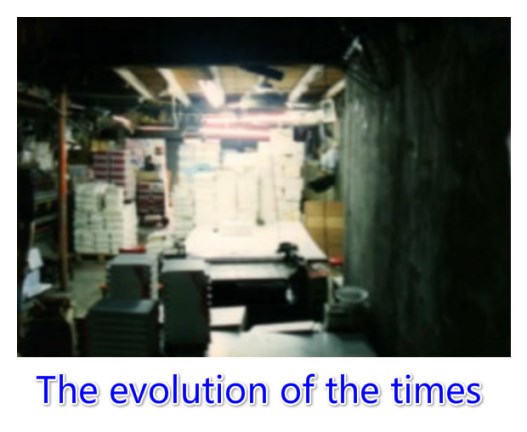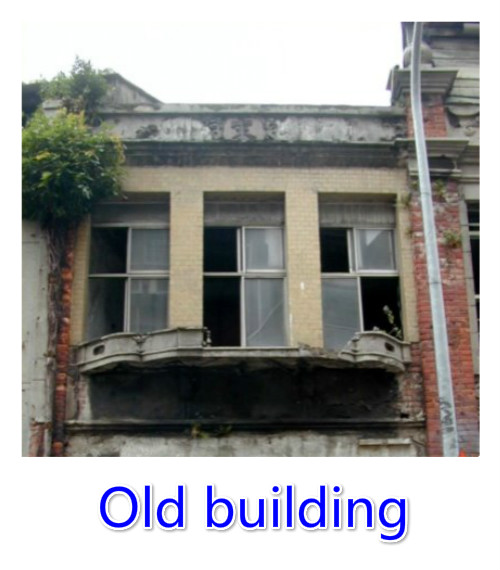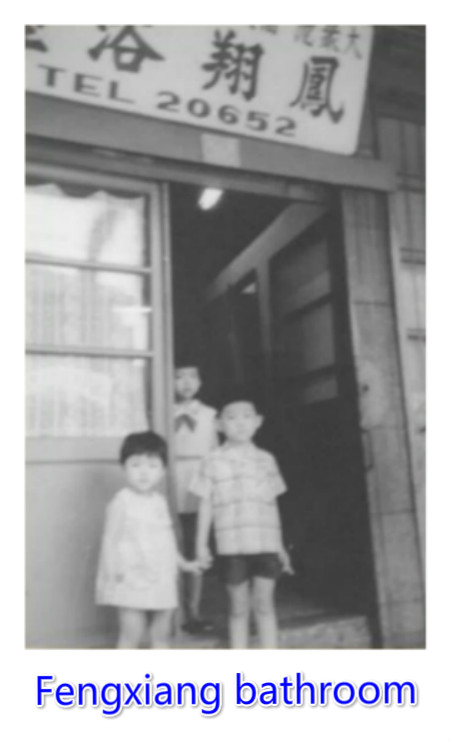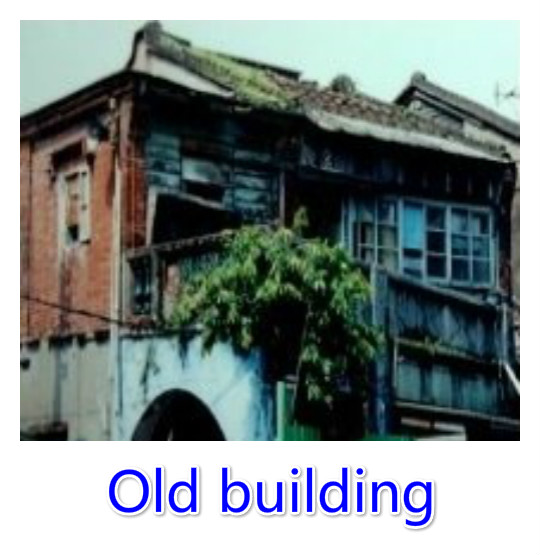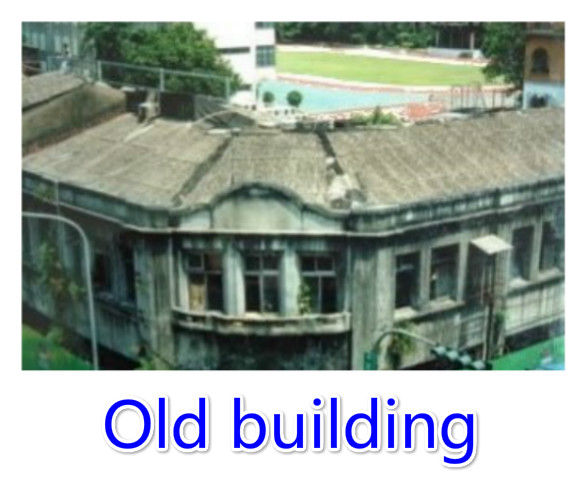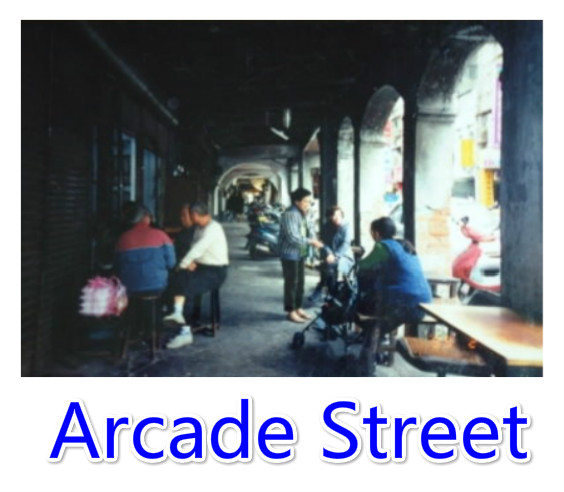

Traditional Qing-styled store houses
Along the once business-based Bo-Pi-Liao old street, houses often drew the storefront back one walkway's length, providing a sheltering space, "Tingzijiao or Arcade", for passers-by. The houses supported the eaves with outward stair like pilings of bricks (or "Huokuqi" as said), and each of them had cylindrical walking space beams made with a round China fir.
Street houses with archway facades
Various facades of the town houses in Bo-Pi-Liao come from different construction periods and various decorative materials, such as red bricks, facial washed terrazzo, tiles, and cement finishing. The combination of these materials leaves behind trails of history.
Yongxing Ting
Yongxing Ting, located at No. 163-171 Kangding Road, was a trading company and owned by Lin-Li in the Qing period. This company mainly traded in constructive materials, with nearly 30 ships cruising to and from Fuzhou, Quanzhou, Zhangzhou, Xiamen, and Taiwan.. Xiuying Tea Shop
80-year-old Xiuying Tea Shop, located at No.5 Lane 173, Kangding Road, was a renowned traditional tea shop in Bo-Pi-Liao, and served tea and snacks. Weiling Altar
Weiling Altar, located at No. 7 Lane 173, Kangding Road, was a Taoist altar. The owner was known as "Shi Gong Gui" who was a "Red Head Master" who went through rituals such as pacifying the shocked, reinforcing fortunes, protracting longevity, driving out evil spirits, and bringing wealth and fortune. Rixaing Inn
Rixiang Inn, located at No. 17 Lane 173, Kangding Road, presents a facade with the style of Japanese wooden frame. Rixiang Inn was a small local inn, offering cheap rooms to lower-middle customers of all sorts.. Sun Binding Shop
Sun Binding Shop was one of the first binding factories in Taipei, and run by the third generation since the Japanese Rule Era. Song Xie Xing Shop
At No. 153 and 155, Guangzhou Street, Song Xie Xing Shop was a rice shop. The eye-catching 16Song character on the building signifies the glory of the Song's rice business at that time.
Fengxiang Bathhouse
At No. 143, Guangzhou Street, Fengxiang Bathhouse, the name inspired from "A Phoenix SpreadsWings against Winds", is a traditional bathhouse. Chang-Tai-Yan's Residence in Taiwan
In 1898, Chinese sinologist Chang Tai-Yan took refuge in Taiwan for political reason. During his 6-month stay in Taiwan, Chang Tai-Yan stayed at Fu-Di Liao Street (or No. 123, Guangzhou Street at present), Mengjia, where later was designated as a listed historic building by Taipei City Government in 2003. Chang was also a reporter for Chinese column of Taiwan Daily News. Dr. Asho Ro's House
Born at Dingxin Street, Mengjia, Dr. Asho Ro graduated from the Medicine Department of Taiwan Governor-General Office, and started practicing in Xinzhuang. Later he was in Dr. Somei To's Pharmacology Lab to conduct research on opium and then moved back to Mengjia to open his locally famous "Huaian Hospital" (at the intersection of Kangding Road and Guangzhou Street). In 1935, Ro took his doctorate of Medicine in Japan Imperial Kyoto University, and later held positions in Taipei Council, the National Assembly, the director-general of the Taipei Medical Association, the director-general of the China Medical Association, and others. Ro's houses at No. 97 Guangzhou Street and No. 298-302 Kunming Street are leased out.
Changshou Tea Shop
At No. 161, Guangzhou Street, the shop was divided into Changshou Tea Shop and a noodle shop. Changshou Tea Shop was run by Chen, Changshou. So the shop was named after the owner's name. Changshou Tea Shop has been open for business since 1950s, and after the original owner passed away, it was taken over by his wife and daughter in law. Business at the tea shop has always been good, as it serves as a meeting point of tea lovers. The front of the shop is a characteristic façade with 3 arches, under which one could see customers drinking tea and chatting with each other, a unique view in Bo-Pi Liao. In 1999, the shop was moved to Nanning Road.
|

